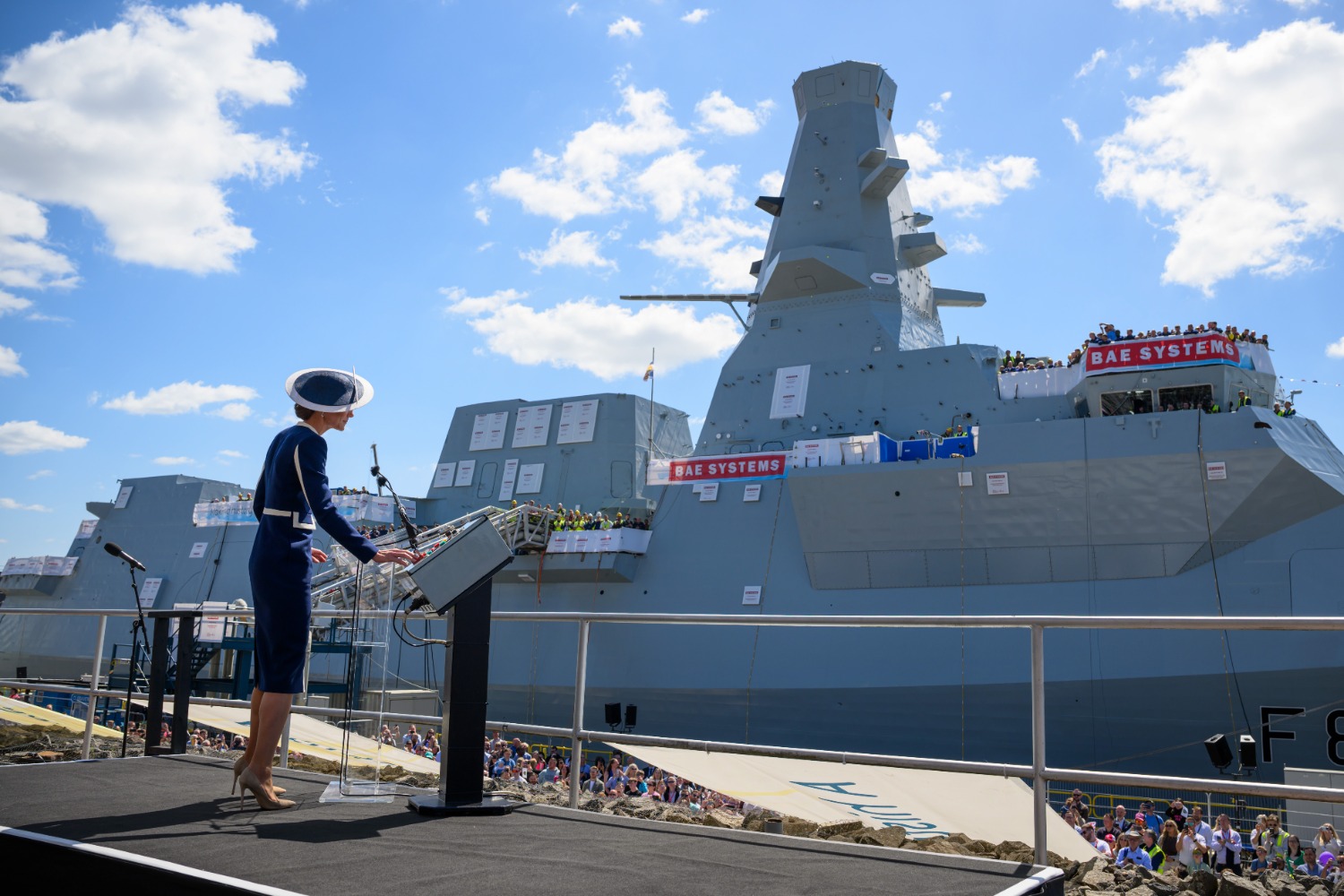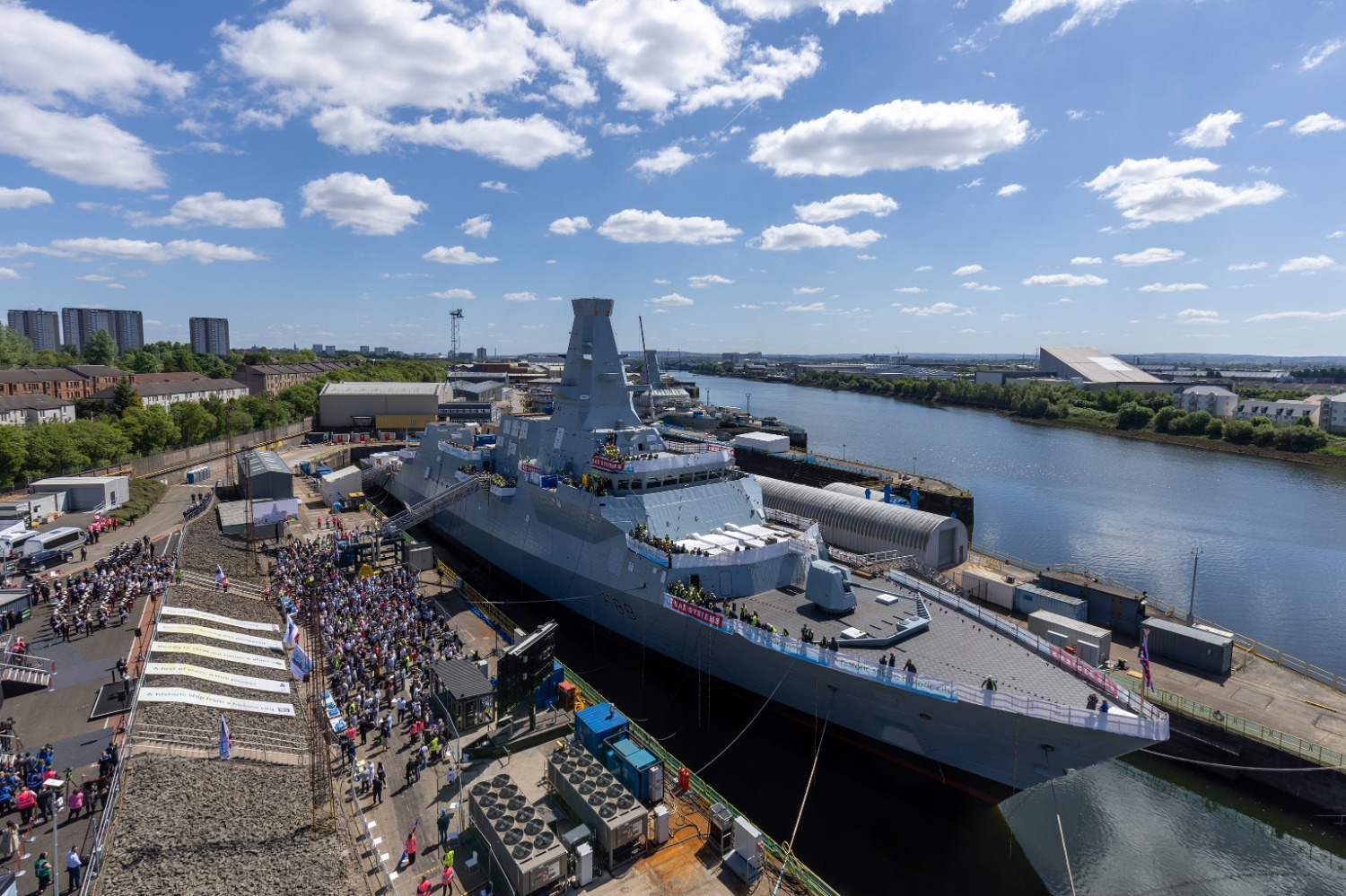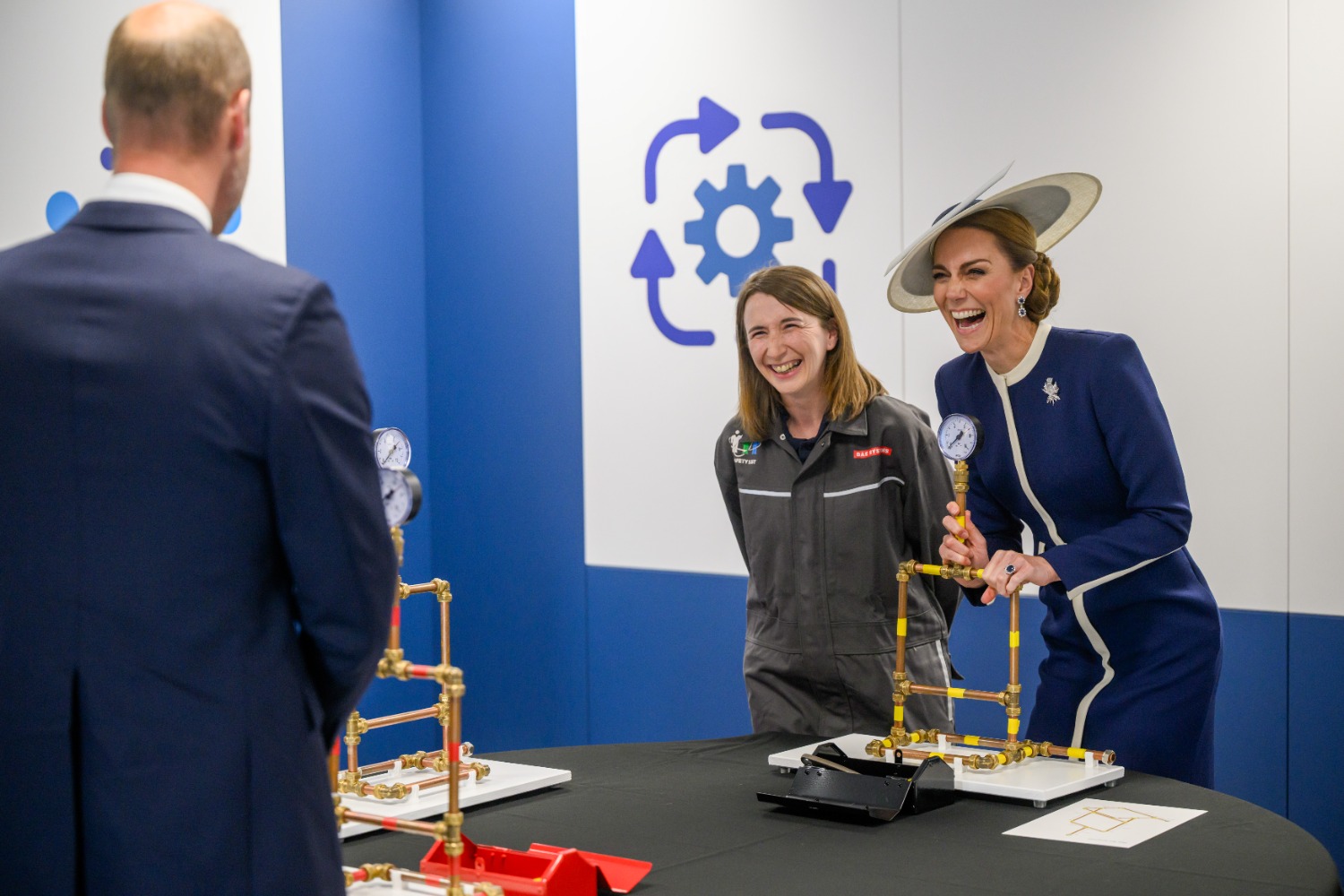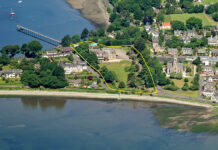
A new Type 26 frigate being built at BAE Systems’ Scotstoun yard has been officially named HMS Glasgow by Her Royal Highness The Princess of Wales.
The naming ceremony, which took place at the Glasgow shipyard, was watched by a crowd including His Royal Highness The Prince of Wales and those who helped build the ship, as well as their families.

The event was concluded with the smashing of a bottle of whisky over the bow of the ship – rather than the traditional bottle of champagne – due to the frigate’s Scottish heritage.

HMS Glasgow is one of eight Type 26 frigates being built by BAE Systems. Weighing 6,900 tonnes and 149-metre in length, the ships will be the ‘backbone’ of the Royal Navy’s surface presence and have a service life of at least 25 years.
Work is already well underway on HMS Glasgow’s sister ships. HMS Cardiff moved to BAE Systems’ Scotstoun yard last year to begin outfitting. HMS Belfast, HMS Birmingham, and HMS Sheffield are progressing at the company’s Govan facilities, while steel will be cut on HMS Newcastle later this year. The eight ships are expected to enter service between 2028 and 2035

Simon Lister, MD of BAE Systems’ naval ships business, said, “This is an historic moment for the Type 26 programme, the city of Glasgow and the thousands of people involved in this great endeavour.
“The naming of HMS Glasgow is a significant step towards this cutting-edge vessel joining the Royal Navy fleet and demonstrates our solid progress in delivering these powerful new ships. We are proud that they will play a vital role in protecting the UK.”
Second Sea Lord Vice Admiral Sir Martin Connell added, “From the first ever HMS Glasgow, sailing under the Royal Navy flag at the end of the 17th century, to the ship we see here in the 21st century, HMS Glasgow has evolved and adapted to meet the warfighting and operational demands of its day. The result of this being 11 battle honours – HMS Glasgow’s pedigree is awe inspiring.
“This ship and her class represent the next chapter of naval innovation, setting the standard for naval warfare, safeguarding the UK’s interests and contributing to national prosperity.”








